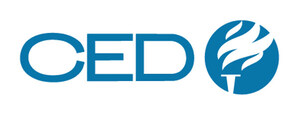Leaders Must Prepare for More COVID-19 Education Disruptions While Also Reforming the K-12 System for the Long Haul
News provided by
Committee for Economic Development of The Conference Board (CED)Jul 15, 2020, 10:00 ET
WASHINGTON, July 15, 2020 /PRNewswire/ -- Policymakers, educators, and business leaders must respond to the hard lessons learned from this past spring's COVID-19 disruption and improve school readiness, safety, and resilience for students and educators as a new academic year fast approaches. But leaders must also not lose sight of broader reforms to K-12 education needed to strengthen college and career readiness for all school children, according to a new solutions brief from the Committee for Economic Development of The Conference Board (CED).
The solutions brief addresses the importance of safely resuming in-school learning as quickly as possible while preparing for the likelihood that many students may not be in classrooms full time this fall. Continuity of learning during this crisis requires rapid improvements in remote education delivery, access to high-speed internet connections, and appropriate internet-enabled devices before the start of the 2020-2021 school year to ensure student achievement and successful outcomes. Given the economic toll the virus has taken on state and local finances, that will require federal support in the near term.
The solution brief also underscores that the crisis cannot be allowed to halt progress in strengthening K-12 education in order to improve the college and career readiness of all students. Before the pandemic struck, many in the public and private sectors worried that US education was failing to live up to its full potential to better serve many students. By the start of the 2020-2021 school year, students may return having achieved as little as one-third to two-thirds of the typical learning in reading and math in the prior year on average. Past crises, like the Great Recession, permanently reduced achievement among American students, with negative effects particularly concentrated in lower-income school districts.
"The COVID-19 pandemic has upended the nation's education and has inflicted major damage on K-12 – setting back student learning, widening existing educational disparities, and placing these schools under enormous pressure to chart a viable path forward," said Lori Esposito Murray, President of CED. "Policymakers, educators, and business leaders must do better than a return to the pre-pandemic status quo for K-12 education and, instead, drive changes that improve the quality of K-12 education to better match the needs of the 21st century marketplace."
The solution brief calls for policymakers and other stakeholders to follow these recommendations:
- Immediately facilitate improvements in remote learning, including ensuring universal student access to high-speed internet and devices for the start of the 2020-21 school year.
- Federally fund the additional pandemic costs to states and localities, ensuring that cuts to education can be avoided.
- Reform the K-12 education system to foster innovation and improve outcomes, creating a true workforce system which better prepares all students for initial workforce entry. This should include providing K-12 students with opportunities to learn and practice in-demand skills as part of the standard curriculum and also supporting high-quality career guidance, informed by up-to-date labor market realities.
- Pilot and test new educational models, learning what works under what conditions for which students, especially in places where traditional approaches already fail to deliver improving outcomes.
Read the new report, K-12: COVID-19 Disruption Must Lead to Overdue Reform, here.
About CED
The Committee for Economic Development is the Public Policy Center of The Conference Board that delivers well-researched analysis, and non-partisan, reasoned solutions in the nation's interest. www.ced.org.
About The Conference Board
The Conference Board is the member-driven think tank that delivers trusted insights for what's ahead. Founded in 1916, we are a non-partisan, not-for-profit entity holding 501 (c) (3) tax-exempt status in the United States. www.conference-board.org.
SOURCE Committee for Economic Development of The Conference Board (CED)

WANT YOUR COMPANY'S NEWS FEATURED ON PRNEWSWIRE.COM?
Newsrooms &
Influencers
Digital Media
Outlets
Journalists
Opted In





Share this article